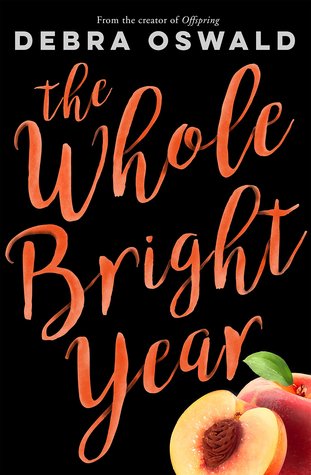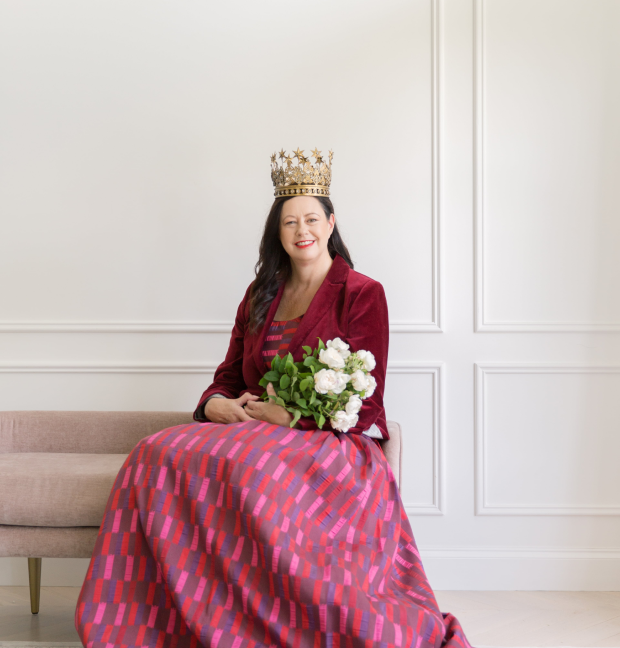
The Blurb (from Goodreads):
In the summer of 1976 it's picking season on an Australian stone-fruit orchard run by Celia, a hard-working woman in her early forties. Years ago, when her husband was killed as a bystander in an armed robbery, Celia left the city and brought her newborn daughter Zoe to this farm for a secure life. Now sixteen, Zoe is a passionate, intelligent girl, chafing against her mother's protectiveness, yearning to find intensity and a bit of danger.
Barging into this world as itinerant fruit-pickers come a desperate brother and sister from Sydney. The hard-bitten Sheena has kidnapped her wild, ebullient eighteen-year-old brother Kieran and dragged him out west, away from trouble in the city. Kieran and Zoe are drawn to each other the instant they meet, sparking excitement, worry, lust, trouble . . .
How do we protect people we love? How do we bear watching them go out into the perilous world with no guarantee of safety or happiness? What bargains do people make with darkness in order to survive? From the creator of Offspring and author of Useful, The Whole Bright Year is a gripping, wry and tender novel about how holding on too tightly can cost us what we love
My Thoughts:
The gorgeous title and cover of this novel are instantly enticing … and then I open the book and find a quote from Homer referencing my favourite Greek myth, the story of Demeter, the goddess of the harvest, whose daughter Persephone is ravished away by Hades, the god of the underworld. At once I wonder if Debra Oswald plans to allude to the myth in a book that I know (thanks to the blurb) is set in Australia in 1976. I love books that drawn on myth and folklore in bold and unexpected ways, and so I settle in to read with a heightened sense of anticipation and interest.
I was ten in 1976 (hard to believe, I hope!), and so the setting immediately evokes for me the long hot summers of my childhood – paddle-pops, and vinyl seats that burn your bare thighs, and pop music blaring from the radio. Malcolm Fraser was Prime Minister, Gough Whitlam is still licking his wounds from the Dismissal, and ABBA was ruling the pop charts with ‘Dancing Queen’ and ‘Money Money Money’. Such an interesting time to set a novel! The 1970s are not distant enough to be considered historical fiction (the Historical Novel Society defines the genre as books written at least fifty years after the events described) and yet the immense changes to technology and society in the last forty-two years make 1976 seem a very different time. This slippage between historical and contemporary fiction makes for a really interesting dynamic. There are no mobile phones and an answering machine is new and baffling technology, for instance, which makes it so much easier for a teenage girl to disappear without trace.
But I am getting ahead of myself.
Celia is a single mother raising her daughter Zoe alone (Celia means ‘heavenly’ and Zoe means ‘life’, a subtle hint to the metafictive role played by these characters). Celia’s husband was murdered in front of her when she was pregnant, and so she has retreated to a peach farm where she works hard and tries not to worry too much about Zoe – curious and radiant – growing up so fast.
In the summer of 1976, Zoe is sixteen. It’s picking season time, which means it’s scorching hot and the peaches are ripe for the plucking (metaphor intended). Trouble with her usual pickers means that Celia needs help, and so she hires two tattooed and pierced runaways from the city to help her bring in the fruit before it spoils. There is Sheena, edgy and foul-mouthed, and her eighteen-year-old brother Kieran, brimming over with life and energy. It is inevitable that Zoe and Kieran are drawn to each other, despite Celia’s worry and warnings. And, given Celia’s tragic past, it is inevitable that she tries to drive a wedge between the two young lovers. What she does not expect is for Zoe to disappear. And so begins the mother’s desperate search for her daughter.
When Persephone vanishes, literally from the face of the earth, Demeter was so overwhelmed with grief and fear that leaves began to shrivel and fall, and frost touched the world for the first time. It is the story of the first winter. And when Persephone is found, imprisoned in Hades’ underworld, her mother’s joy means that life is restored to the frozen world and spring blooms.
Celia’s search for her daughter, in all the dark places of Sydney’s underbelly, is analogous to this search by the goddess of the harvest. It is every mother’s nightmare, and certainly one I share. I could identify with both Zoe – rebellious, intelligent, and wanting to experience as much of life as possible – and her mother Celia, hurt by life, all too aware of its dangers, wanting only to protect her daughter but inadvertently driving her away.
I don’t want to say much more, because the plot of The Whole Bright Year is driven by a sense of ever-tightening suspense. It begins slowly, languorously, with gorgeous descriptions of peaches and summer and young love, but almost imperceptibly the screw of dramatic tension is tightened until I couldn’t bear to put the book down. And, by the end, I was all choked up. A really powerful book, written with warmth, tenderness and humour that will stay in my memory a long time.

